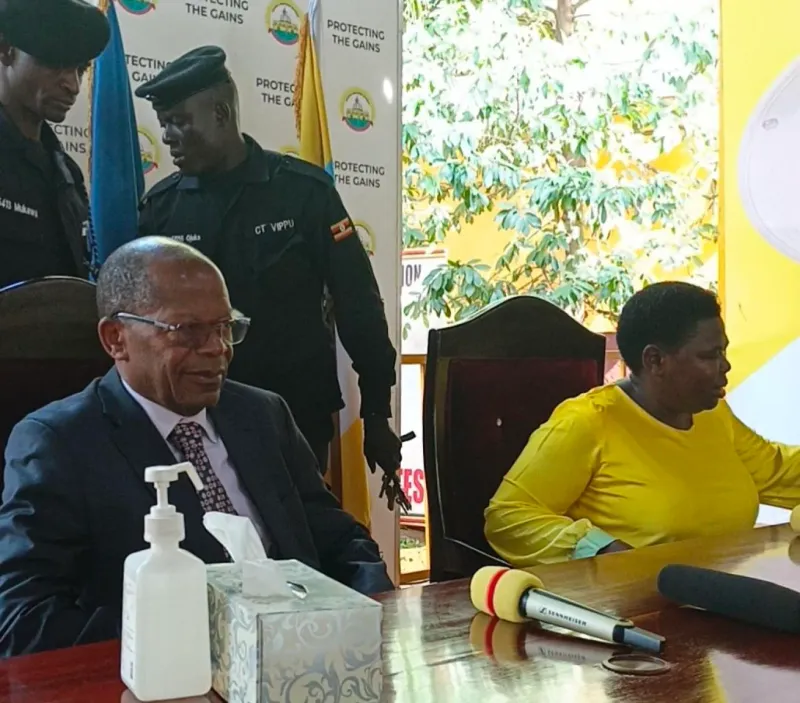
State Minister for Higher Education Dr John C. Muyingo has issued an apology to the nation following the recent glitches reported during national examinations. He reassured students, parents and the wider public that the mistakes were few, had already been addressed and had not compromised the overall credibility of the Uganda National Examinations Board (UNEB).
Speaking at the NRM Secretariat in Kampala during a press briefing on the Education Sector’s achievements under the NRM government, the minister urged Ugandans to remain calm, insisting that UNEB’s reputation and work processes remained sound despite the setback. Referring specifically to the Chemistry and Physics practicals that triggered national concern, he stated, “I am sorry for what happened.”
Muyingo emphasised that the incidents were minor and that corrective action had been taken promptly. “It’s not true that there are many errors, only four,” he explained. “And do you know how big the volume of work UNEB is handling? To have only four errors, we need to congratulate them.” He added that he did not want “to put the public into panic,” stressing that “these are not worrying errors.”
His apology followed a tense week after UNEB urgently adjusted instructions during the UACE Chemistry practical. Schools had discovered that reagents labelled as “unknowns” failed to produce expected quantities once dissolved. The issue surfaced just before the exam started, forcing UNEB to issue new guidelines reducing each candidate’s reagent volume. A circular signed by UNEB Executive Director Dan Odongo later directed schools to supply 55 cm³ of FA2 and 55 cm³ of FA3 instead of the initially required 100 cm³.
This adjustment caused delays in many centres, particularly those with large candidate numbers, as schools quickly realised the reagents were insufficient. Some candidates lost nearly an hour as administrators sought clarification from UNEB. The Chemistry disruption came shortly after the UCE Physics incident, in which schools struggled to acquire the 10-centimetre focal lens specified for the practical. Many laboratories lacked the lens, suppliers were overwhelmed and teachers resorted to borrowing or improvising mere minutes before the exam began.
Despite these challenges, Muyingo urged the public to remain confident in UNEB, noting that the board’s workload increases every year and that the four recorded errors should be understood within that broader context.
He also commented on concerns about deteriorating school facilities after pictures circulated of classrooms overtaken by ant hills or damaged by floods. Muyingo said he had toured many of the affected schools with engineers and inspectors, and that a detailed technical report had been submitted to the ministry’s leadership. He encouraged parents to visit nearby schools to see ongoing improvements and to understand the remaining gaps.
During the briefing, Muyingo highlighted strides made toward fulfilling the NRM government’s 2021–2026 education and sports commitments. He announced that government had completed the construction of 259 new secondary schools in subcounties that previously lacked them, surpassing the original goal of 258. Additional schools are being built in areas hosting refugees, while key traditional secondary schools, special-needs institutions and teacher training colleges are undergoing major renovations.
Millions of textbooks have been supplied to primary and secondary schools, and 201 secondary schools have been operationalised. He added that government support to community schools has been strengthened through grants, teacher recruitment and the provision of science equipment and ICT resources.
On school inspection, the minister detailed improvements such as a biometric attendance system that has raised teacher presence from 50 percent to 70 percent, along with expanded inspection coverage. Salaries for science teachers have been enhanced, hundreds of staff houses constructed and phased salary improvements for arts teachers are expected to begin in 2026.
Muyingo further noted that the competency-based curriculum is preparing learners with entrepreneurial and practical skills, while vocational and technical institutes have been upgraded, including the transformation of sixteen TVET colleges into centres of excellence in specialised sectors such as construction, manufacturing, petroleum engineering and road maintenance.
In higher education, the minister reported growth driven by scholarships and the Students’ Loan Scheme. Construction of a Gulu University constituent college in Karamoja is progressing, with the aim of transforming the region’s educational and economic outlook. According to the ministry, 786.4 acres of land have been secured for the project. “All project affected persons were fully compensated, ensuring compliance with environmental and social safeguards. Construction of a multipurpose building valued at UGX 39.9Bn is underway by the National Enterprise Corporation (NEC),” said Muyingo.
Government is also revamping Busoga University and Mountain of the Moon University, while preparations continue for a new public university in Bunyoro. About 98 acres have been secured in Buhimba, Kikuube District for the new institution, and 18 academic programmes have been cleared by the National Council for Higher Education, with physical plans awaiting approval. For Busoga University, he revealed that 29 billion shillings has been provided to support the task force overseeing the institution’s development and that 15 land titles, approximately 150 acres, have been secured.
In sports, the minister reported steady progress in refurbishing Mandela National Stadium, constructing regional stadiums in Hoima and Arua and upgrading training facilities ahead of AFCON 2027.
Muyingo closed by reaffirming government’s commitment to building a robust, inclusive and modern education system. He urged citizens to acknowledge the positive changes already visible in their communities and expressed regret once more over the examination disruptions. “We shall continue to transform Uganda into a nation where every child can learn, innovate and succeed,” he said.
At the same event, NRM Deputy Secretary General Rose Namayanja encouraged Ugandans to observe the improvements in education infrastructure around them, saying these gains must be safeguarded as the country prepares for next year’s elections.


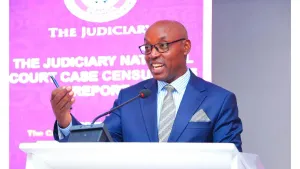

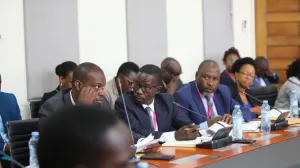
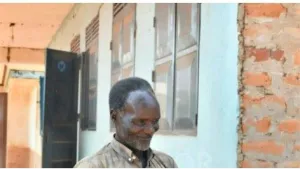
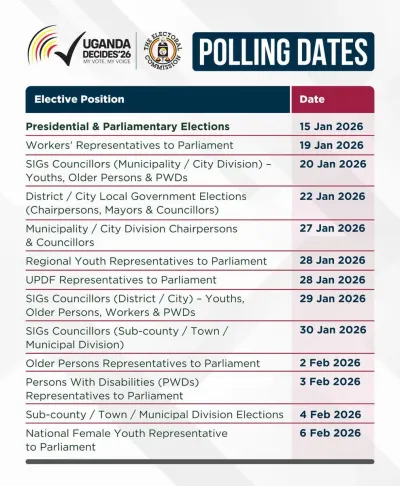





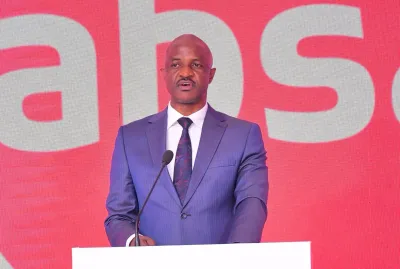
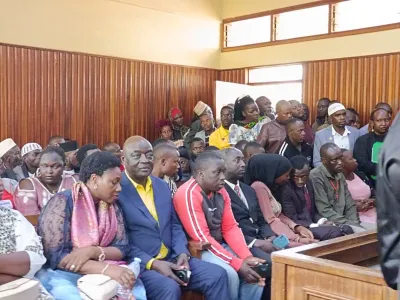
Marlene Luwedde
Leave a Comment
Your email address will not be published.